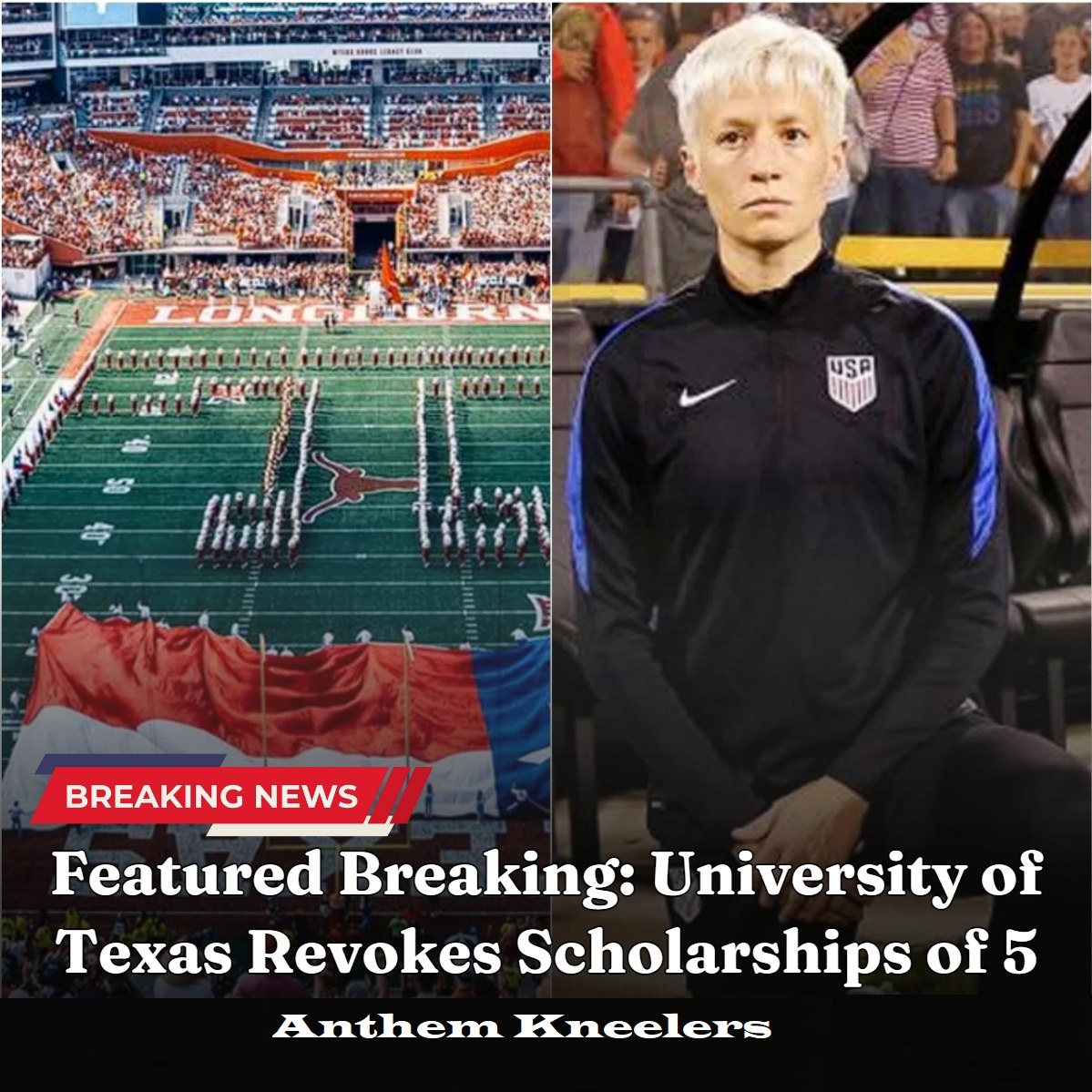In a controversial and unprecedented move, the University of Texas has revoked the scholarships of five student-athletes who knelt during the national anthem at a recent sports event. This decision has sparked a heated debate across the nation, raising questions about free speech, the role of athletes in political activism, and the policies of educational institutions.
The Incident
The incident occurred at a high-profile sports event where the five student-athletes chose to kneel during the national anthem as a form of protest against racial injustice and police brutality. The action was in line with a broader movement among athletes at all levels who have used their platforms to highlight social issues.
University’s Decision
Following the protest, the University of Texas administration announced the revocation of the scholarships, citing a violation of the university’s code of conduct and team policies. The university’s statement emphasized the importance of respect for national symbols and the institution’s values, suggesting that the athletes’ actions were deemed inappropriate.
Reactions and Controversy
The decision has elicited strong reactions from various quarters. Supporters of the university’s move argue that student-athletes, as representatives of the institution, should adhere to certain standards of conduct. They believe that the national anthem is a moment of unity and respect that should not be used for protest.
On the other hand, critics argue that the university’s decision infringes on the athletes’ right to free speech and peaceful protest. Advocacy groups, civil rights organizations, and prominent figures in sports and politics have condemned the move, calling it a suppression of legitimate expression and a step backward in the fight for social justice.
Impact on the Athletes
The revocation of scholarships has significant implications for the affected athletes. Scholarships often cover tuition, housing, and other essential expenses, and losing them can jeopardize the athletes’ educational and athletic careers. The decision may also have broader implications for their future opportunities in sports and beyond.
Broader Implications
This incident is part of a larger national conversation about the intersection of sports, politics, and free speech. Kneeling during the national anthem has been a contentious issue since it was popularized by NFL player Colin Kaepernick in 2016. The actions of the University of Texas highlight the ongoing debate about how institutions should respond to athletes who use their platforms for political and social activism.
Legal and Ethical Considerations
Legal experts are weighing in on the situation, considering whether the university’s actions violate constitutional rights or other legal protections for free speech. Ethically, the decision raises questions about the balance between institutional values and individual rights, as well as the role of educational institutions in fostering or suppressing activism.
Moving Forward
As the story unfolds, there will likely be continued discussions and potential legal challenges. The affected athletes may seek legal recourse or support from advocacy organizations. The University of Texas, meanwhile, may face pressure to reconsider its stance or to clarify its policies regarding student conduct and free expression.
Conclusion
The University of Texas’ decision to revoke the scholarships of five anthem-kneeling athletes has sparked a significant national debate. This incident underscores the ongoing tensions between institutional policies, individual rights, and the role of sports in social activism. As the conversation continues, it will be crucial to consider the broader implications for athletes, educational institutions, and the pursuit of social justice.
